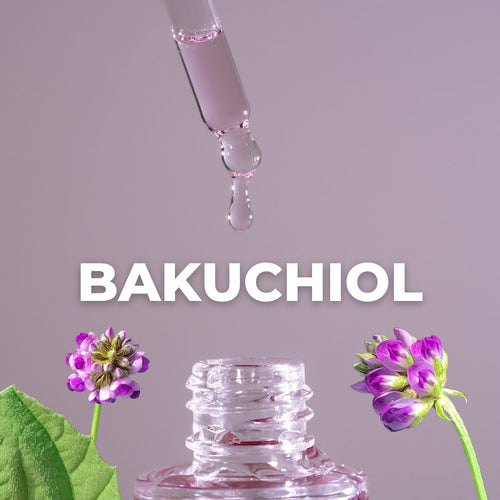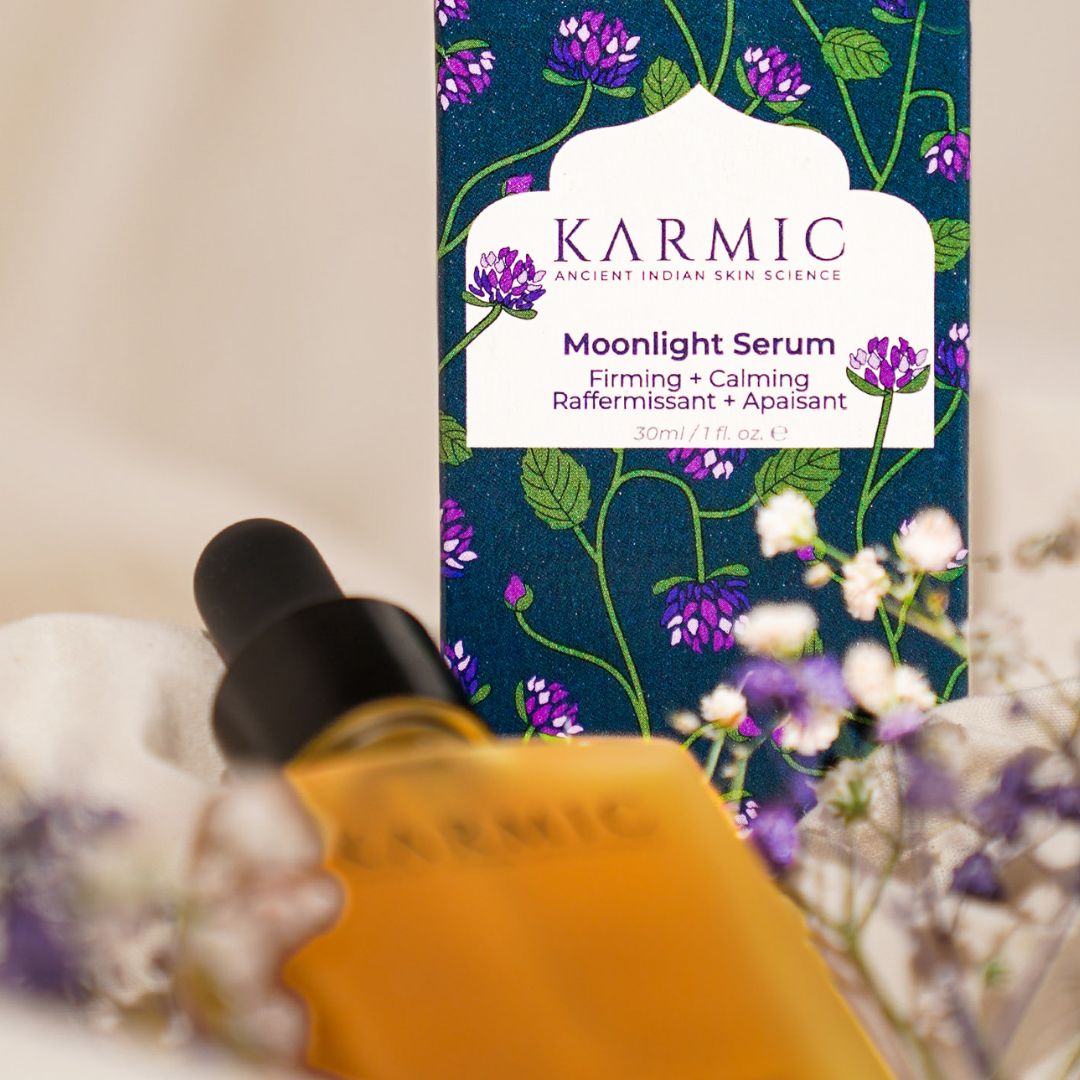When it comes to skincare, few ingredients have made as big an impact as Vitamin C. It’s known for its ability to brighten the skin, fade dark spots, smooth out fine lines, and protect against everyday skin damage. But behind all the buzz is real science.
Vitamin C, also known as ascorbic acid, is not just a health supplement—it’s a skincare superhero. In this blog, we’ll dive into how Vitamin C works on the skin, why it helps to reduce wrinkles, and how to use it correctly in your daily routine. Whether you're just starting your skincare journey or looking to improve your existing routine, Vitamin C could be the missing piece.
What Is Vitamin C and Why Is It Important for the Skin?
Vitamin C is a water-soluble vitamin that your body cannot produce on its own. While it's essential for many bodily functions, it's especially powerful when used on the skin. Applied topically (directly to the skin), Vitamin C acts as a strong antioxidant, fighting off damage from pollution, UV rays, and other environmental stressors that can age your skin.
It also plays a major role in the production of collagen, which is the protein that keeps your skin firm, smooth, and youthful. As we grow older, our collagen levels drop naturally. That’s when wrinkles, fine lines, and sagging start to appear. Vitamin C helps slow this process and can even reverse some of the early signs of ageing.
How Vitamin C Reduces Wrinkles
Encourages Collagen Production
Collagen gives skin its structure and firmness. Think of it like the mattress under your sheets—it holds everything up. When collagen breaks down with age or damage, your skin begins to wrinkle and lose elasticity.
Vitamin C supports your body’s ability to make new collagen. It helps important enzymes stabilise and build the collagen strands, creating a tighter, more lifted appearance. With regular use, Vitamin C serums can encourage smoother, firmer skin with fewer visible wrinkles.
Studies have shown that applying Vitamin C to the skin regularly can increase collagen production significantly. Over time, this makes the skin appear more youthful, plump, and refreshed.
Prevents Collagen Breakdown
While Vitamin C helps produce collagen, it also prevents it from breaking down too quickly. Every day, your skin is exposed to damaging particles called free radicals.
These are unstable molecules created by pollution, smoking, UV rays, and stress. Free radicals break down collagen and speed up ageing.
Vitamin C neutralises these free radicals before they can cause harm. It acts like a shield, protecting your skin’s structure from damage. By doing so, it helps maintain firmness and elasticity, reducing the formation of fine lines and deep wrinkles.
Enhances Skin Elasticity
Elasticity is how well your skin can stretch and bounce back to its original shape. It's what keeps your skin looking toned rather than loose or saggy. Alongside collagen, your skin relies on a protein called elastin to stay flexible and firm.
Although Vitamin C doesn’t create elastin in the same way it supports collagen, it helps preserve and strengthen the structure where elastin sits. This gives your skin better support and flexibility, making it look younger and tighter.
Brightening Skin and Reducing Pigmentation
As we age, dark spots, sunspots, and uneven skin tone become more common. These are caused by an overproduction of melanin—the pigment that gives skin its colour. Too much melanin in one spot leads to discolouration, and this often makes the skin look older than it really is.
Vitamin C helps solve this problem in three ways:
Controls Melanin Production
Vitamin C blocks the enzyme called tyrosinase, which is needed to make melanin. By slowing this process down, Vitamin C prevents new dark spots from forming and gradually fades existing ones.
Boosts Skin Cell Turnoveraging
Healthy skin is constantly renewing itself. Vitamin C supports this process by encouraging the shedding of older, discoloured skin cells and replacing them with new, healthier ones. This creates a fresher, more even skin tone over time.
Fights Pigment-Causing Damage
Sunlight, blue light from screens, and air pollution can all cause inflammation and trigger pigment production. Vitamin C calms the skin and prevents these triggers from creating more dark spots.
If used daily, most people see brighter, more even skin within 4 to 8 weeks. It can help fade old acne marks, sun damage, and dullness, making your skin look clearer and more radiant.
Powerful Protection Against Environmental Damage
Vitamin C doesn’t just fix existing skin problems—it also prevents future damage. Our skin is constantly exposed to harmful elements in the environment, including:
- UV rays from the sun
- Air pollution
- Cigarette smoke
- Blue light from phones and computers
These stressors create free radicals, which damage skin cells and speed up ageing. Vitamin C helps by neutralising these free radicals before they can harm your skin.
This antioxidant protection is essential for keeping your skin looking healthy and youthful. Think of Vitamin C as your skin’s daily bodyguard—working quietly in the background to keep it safe and strong.
And when used with sunscreen, Vitamin C makes your SPF even more effective. It adds another layer of protection, reducing the chance of sunburn and long-term UV damage.
How to Choose the Right Vitamin C Product
If you’re ready to try Vitamin C, it’s important to choose the right product. Not all Vitamin C serums are made the same, and picking the wrong one could mean you don’t get the results you want.
Pick the Right Form
There are several types of Vitamin C used in skincare:
- L-Ascorbic Acid – The purest and most effective form, but it can be irritating to sensitive skin.
- Ascorbyl Tetraisopalmitate – A gentle, oil-soluble version that soaks deeper into the skin and suits most skin types.
- Sodium Ascorbyl Phosphate – Water-soluble, mild, and great for oily or acne-prone skin.
Choose the Right Strength
The ideal strength for most people is between 10% and 20%. If you’re just starting out or have sensitive skin, start at 5–10% and slowly work your way up.
Higher strengths (over 20%) don’t always give better results and can sometimes cause irritation.
Pay Attention to Packaging
Vitamin C breaks down when exposed to air and light, so it’s important to choose a product that’s stored in a dark, airtight bottle. Avoid clear bottles or ones with wide openings, as they let in light and air that can reduce the serum’s power.
Look for airless pumps, amber glass bottles, or tinted tubes to keep your product fresh and effective.
How to Use Vitamin C in Your Daily Routine
Adding Vitamin C to your skincare routine is simple, and it works well with most other skincare products.
Daily Routine
- Cleanse – Start with a gentle face wash to remove dirt and oil.
- Apply Vitamin C Serum – Use a few drops and gently pat it into your skin.
- Moisturise – Follow up with a moisturiser to lock in hydration.
Sunscreen – Always finish with SPF during the day. This boosts the serum’s power and protects your skin.
When to Use It
Vitamin C can be used in the morning to protect your skin during the day or at night to repair and restore while you sleep. Some people choose to use it twice a day for best results.
What It Works Well With
Vitamin C pairs nicely with:
- Vitamin E – Enhances antioxidant protection
- Ferulic Acid – Boosts stability and effectiveness
- Hyaluronic Acid – Adds hydration
- Niacinamide – Helps with brightening and calming the skin
Avoid using it at the same time as strong ingredients like retinol or benzoyl peroxide, as they can reduce its effects or cause irritation. You can use these ingredients at different times of the day (for example, Vitamin C in the morning and retinol at night).
When Will You See Results?
With daily use, you may start seeing changes in 2–4 weeks. Your skin might look brighter, smoother, and more refreshed. Wrinkles and fine lines take a bit longer, usually around 6–8 weeks, to start improving.
For best results, consistency is key. Use your Vitamin C product every day and be patient it’s working even if the changes are gradual.
Final Thoughts: Why You Should Try Vitamin C
Vitamin C is one of the most well-researched, effective ingredients in skincare. It fights ageing, boosts collagen, fades dark spots, and protects your skin from daily damage. Whether you want smoother skin, fewer wrinkles, or a brighter complexion, Vitamin C can help you get there.
By choosing the right product, applying it consistently, and protecting your skin with SPF, you can unlock the glow and health that comes from radiant, youthful skin.
So if you're looking for one simple step that can make a big difference—Vitamin C might be exactly what your skin needs.
Frequently Asked Questions (FAQs)
1. Can I use Vitamin C every day?
Yes, you can! Using Vitamin C daily helps keep collagen levels steady and protects your skin from things like pollution and sun damage.
2. When should I start using Vitamin C?
It’s a good idea to start using Vitamin C in your early 20s. It helps keep your skin healthy and can stop signs of ageing before they start.
3. What does it mean if my Vitamin C serum turns yellow?
If your Vitamin C serum turns a dark yellow or brown colour, it means it's starting to go off. This happens when it’s exposed to air or light for too long. It’s best to get a new one to make sure it still works properly.




